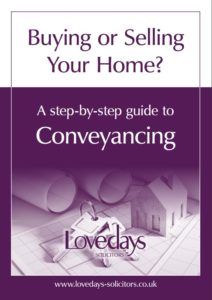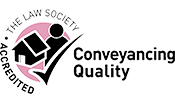- You & Your Family
- Your Job
- Family Law
- Divorce and Separation
- Finances on Divorce
- Dissolution of Civil Partnership
- Separation
- Cohabitation Agreements
- Finances on Breakdown of Cohabitation Relationship
- Prenuptial Agreements
- Grandparents' Rights
- Step-Parents' Rights
- Child Maintenance
- Parental Responsibility
- Paternity Disputes
- Buying Property Jointly
- Probate
- Wills
- Your Property
- Conveyancing
- Partnerships
- Disputes
- Boundary Disputes
- Dealing with Rent Arrears
- Japanese Knotweed Claims
- Landlord and Tenant Disputes
- Landlord Harassment & Illegal Eviction
- Negligence Claims Against Builders & Developers
- New Build Property Disputes
- Noisy Neighbour Disputes
- Personal Debt Collection
- Property Misrepresentations Claims
- Rights of Way Disputes
- Section 21 No Fault Evictions
- TOLOTA Claims
- Tree & Hedge Neighbour Disputes
- Your Business
- About Us
What to Do After a Death
When a loved one passes away, it can be an incredibly distressing time for everyone involved. Emotions are likely to be running high and it can be a very sensitive period when no one wants to deal with the burden of paperwork. However, this is something that is necessary after a death.
At Lovedays Solicitors, we understand that dealing with the death of someone close to you can be very difficult and that you may not want to deal with many of the legal implications that follow this.
Introduce the sensitive nature of dealing with the death of a loved one. So here to provide a range of services and help you collect information that will help you deal with many of the important aspects of probate law. This can include dealing with death certificates, Wills, estates and assets as well as calculating any Inheritance Tax that is due and ensuring that all legal requirements have been met.
We know that this can be a very emotional time and so all of our expert team will deal with you with compassion and knowledge to ensure that everything is dealt with as quickly and sensitively as possible.
Immediate Steps After a Death
Obtaining the Medical Certificate
When someone dies, one of the first things that you will need to do is obtain a Medical Certificate of Cause of Death. Who issues this will depend on where your loved one died. A GP may be able to provide this certificate personally if your loved one died at home, whereas if the death occurred in a hospital or care home, it will come from the administrative staff. If you know whether your loved one we wished to be buried or cremated, then you need to let the doctor completing the certificate or the coroner's office know.
The Medical Certificate of Cause of Death will include the personal information of the deceased, including where they died and what the cause of death was. If a doctor is unsure about the cause of death or the circumstances surrounding the death are uncertain then they may not be able to provide the certificates immediately. In this case, the death must be reported to a coroner who will then investigate and may require a post-mortem or an inquest. If this happens, you will not be able to register the death until the coroner has concluded their investigations, but they may issue an interim death certificate to allow the funeral to go ahead and probate to be granted.
Registering the Death
It is necessary to register the death of your loved one within five days, or eight days if you are in Scotland. This will give you a certificate for burial which you can then pass to the funeral director. Alternatively, you may be given an application for cremation which you will need to complete and give to the crematorium. These must be completed before the funeral is able to take place.
To register a death, you will need to take a passport or birth certificate of the person who died, as well as any relevant marriage or civil partnership certificate. You should also try and find their medical card and a document showing the usual address of the person who died. This can all help to ensure that the registration is completed accurately and quickly. You will need to be able to provide the full details of the person who died, as well as the date and place of their death, whether they were in receipt of a pension or allowance for public funds and whether there will be a burial or cremation, as well as details of where it will take place and the name of the funeral director.
Using the 'Tell Us Once' Service
There can be a lot of different organisations who need to be informed of the death and this can be both stressful, distressing and time-consuming to deal with. The government has therefore set up the Tell Us Once service, which means you only have to complete the details once and they will inform all relevant agencies. This will ensure that HM Revenue and Customs, the Department for Work and Pensions, the Passport Office, the DVLA and the local council are all informed of the death. They can also contact a number of public sector pension schemes as well. It is important to check whether this service is available in your area. And to remember that you will still need to notify banks, utility companies and landlords individually.
{quote}
Arranging the Funeral
When it comes to arranging a funeral, you should check if the person who died had already made their own arrangements through prepaid funeral plans or life insurance. You should choose a funeral director who is a member of either the National Association of Funeral Directors or the National Society of Allied and Independent Funeral Directors, as these have codes of practice in place. If you decide to arrange the funeral yourself, you will need to contact the cemeteries and crematorium department of your local council.
Funeral costs can add up as they include funeral director fees, the things that the funeral director pays for on your behalf, such as the crematorium or cemetery fees and the local authority burial or cremation fees. You can pay for a funeral from a financial scheme held by the deceased person by yourself or other family members, or using money from the person's estate. It may also be possible to apply for a Funeral Expenses Payment if you have difficulty paying for the funeral.
Managing Legal and Financial Affairs
Valuing the Estate and Paying Inheritance Tax
Dealing with the legal and financial affairs of someone who has died can be a difficult process, and so it is important to take it step by step. One of the first things that you will need to do is value the estate that has been left behind. This means that you need to look at each of the assets that was owned by the deceased, including any savings, pensions, property or individual possessions of value. You will need to obtain an accurate and up-to-date valuation for each of these items, and so it may be worthwhile contacting outside agencies to help you with this. You will also need to look at any debts or liabilities that were outstanding at the time the person died and deduct these from the value of the estate.
Once you have established what the value of the estate will be, you can then calculate whether any Inheritance Tax is due. This will need to be paid at a rate of 40% if the estate is worth more than £325,000 and does not have any relevant exemptions in place.
Applying for Probate
You will need to make sure that any outstanding inheritance tax has been paid before you are able to receive a Grant of Probate. This grant is very important as it will give you the authority to then deal with the assets left behind in the estate. If the deceased left a Will, then you will need to fill in form PA1P to make your application and this can only be applied for by the executors. If the person died without a will, then you will need to fill in application form PA1A and apply for a Grant of Letters of Administration.
If you have the Grant of Probate or Letters of Administration, you can show this to any financial institution which holds assets for the deceased. It will show that you have the authority to deal with their assets and can then look at selling or re distributing them amongst the beneficiaries.
Dealing with Debts and Taxes
As a Personal Representative, once you have the authority to act on behalf of the estate of the deceased person, you must ensure that any outstanding Inheritance Tax has been paid as a priority. This needs to be done within 12 months of the death otherwise penalties and interest can be incurred.
Once all Inheritance Tax has been taken care of, you will then need to deal with any debts or liabilities that have been left behind. This might include mortgages, credit cards, or other loans or debts. These can be paid off using the money from the estate, and this should be done before any assets are distributed to the beneficiaries. It is important that you keep detailed receipts of all payments that are made as these will need to form part of your final report on the estate.
{quote}
Emotional and Practical Support
Accessing Bereavement Services
Losing someone close to you can be incredibly difficult, whether it is expected or not. There can be many emotions that you need to come to terms with as part of the grieving process and therefore you should not be afraid to reach out to national or local bereavement support services. These can come in the form of counselling all support groups and can help to bring people together or deal with your issues on a one-to-one basis.
The gov.uk website includes details of how to find bereavement services in your local area. You can also find more help and counselling options available from Cruse Bereavement Support. Take a look at cruse.org.uk to find more resources on understanding grief and the different support services that they have on offer. You may also find it beneficial to speak to The Samaritans free on 116 123.
Handling Personal Affairs
As well as managing a Will and an estate, there are many other personal affairs that need to be dealt with after a death. You will have to deal with practical issues such as redirecting mail. To do this, you will need to fill in a special circumstances form and take it to the local post office along with a death certificate or proof of power of attorney. You can also stop receiving unsolicited posts by registering with the Mailing Preference Service and the Bereavement Register free of charge.
You may also want to think about how to deal with the digital presence of the deceased. If you wish to keep their social media accounts active as a way of remembering them, you can memorialise their social media pages. You will need to contact the individual platforms to let them know that the person in charge of the account has died and what you wish to happen to it. This will also allow you to recover any photographs from the account or close it down entirely.
How Lovedays Solicitors Can Help
Lovedays Solicitors have been helping people in the Derbyshire area for more than 100 years to deal with all sorts of issues relating to probate, Wills and intestacy laws. We are home to a team of experts who are all trained to not only offer dedicated and specialist legal advice, but also to handle your case with compassion and sensitivity.
We are experts in probate and estate management and can therefore help to make an extremely stressful process much easier. It is our job to support you through this difficult time and make sure that the wishes of the deceased are adhered to whilst keeping family members happy and ensuring that you comply with the law at all times.
Conclusion
Dealing with death is difficult and emotional, and you are not expected to know exactly what you should be doing. At Lovedays Solicitors we can provide the help and advice that you need at such a difficult time, ensuring that everything is done in the correct time frame and with as little stress as possible for you.
We know that we cannot bring your loved one back, but we can help to take some of the burden of what you need to do in the immediate aftermath to help make it a little easier to bear. Please feel free to get in touch with us now and one of our friendly and sensitive team will be here to help.
{quote}
Frequently Asked Questions
If someone has died abroad, then you should register their death according to the regulations of the country they are in. A local death certificate will be issued and this can usually be used in the UK, however it may need to be translated if it is not in English. You can then register the death with the UK authorities through the Foreign, Commonwealth and Development Office.
In order to register a death, you will need to go to any registry office. However, it is recommended that you use one in the area where the person died. This means that you will be given the documents that you need that day, whereas if you visit an office in a different area, there can be a delay in this. Most offices require you to make an appointment, so please call in advance to check.
There can be a lot of paperwork involved in a death. You will receive a Medical Certificate of Cause of Death immediately after the death and you will then be able to use this to get a death certificate. When you have registered the death, you will also receive a certificate for burial or cremation and a unique code that allows you to make use of the Tell Us Once service. You may want to order extra copies of the death certificate as these might be needed for sorting out the estate of the person who has died, and asking for copies at a later date can be more expensive.
Get Support Today
Navigating the legal complexities after the death of a loved one can be overwhelming during such an emotional time. At Lovedays Solicitors, we are here to ease that burden with compassionate, expert guidance. Our experienced team can assist with everything from probate applications to estate management, ensuring that all legal matters are handled efficiently and with care.
Let us support you through every step, so you can focus on healing while we manage the details. Trust Lovedays Solicitors to provide the sensitive, professional help you need. Contact us today for peace of mind during this difficult time.

Free Guide
If you don’t know your leasehold from your freehold, then get our Free Conveyancing Guide. It contains details about the steps you will need to take with any property transactions. The Guide giving you detailed guidance on what your lawyer will be doing for you and what to look out for.


Lovedays Solicitors, Brooke-Taylors Solicitors, Potter and Co Solicitors and Andrew Macbeth Cash and Co Solicitors are the trading names of Derbyshire Legal Services Limited which is a company registered in England and Wales under company number 08838592. Registered office Sherwood House, 1 Snitterton Road, Matlock, Derbyshire, DE4 3LZ.
Authorised and Regulated by the Solicitors Regulation Authority under SRA ID number 637916.
-
01629 56660
-
This email address is being protected from spambots. You need JavaScript enabled to view it. -
Sherwood House
1 Snitterton Road
Matlock
Derbyshire
DE4 3LZ
© Copyright 2019 Derbyshire Legal Services Limited | Website by WebWorks